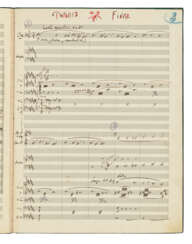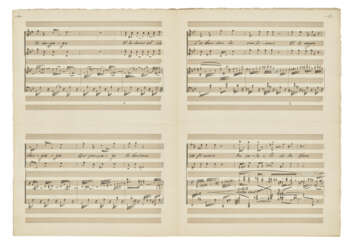Igor Stravinskii (1882 - 1971) — Auction price
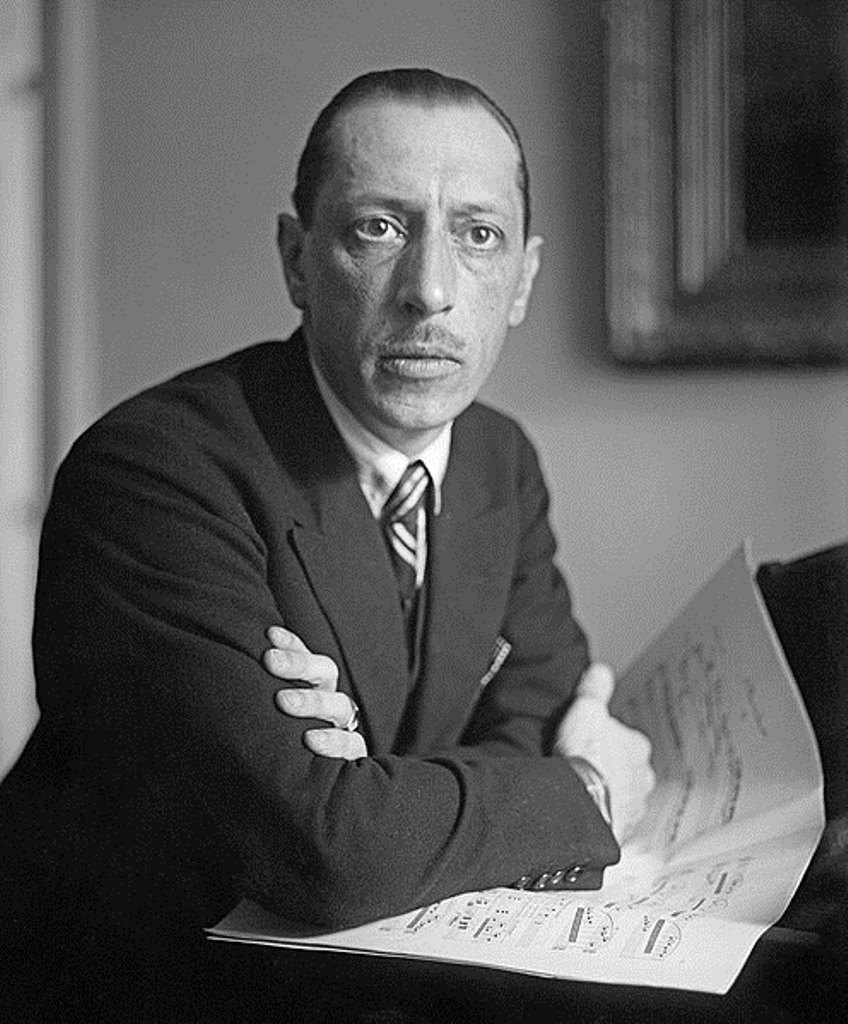
Igor Fedorovich Stravinskii (russian: Игорь Фёдорович Стравинский) was a Russian composer, a citizen of France and the United States. One of the greatest representatives of the world musical culture of the 20th century.
The future composer was born into a creative musical family. Igor Stravinskii's father was an opera singer, soloist of the Mariinsky Theater Fedor Stravinskii, and his mother was a pianist Anna Kholodovskaya. Igor studied music at home, the Stravinskiis were often visited by their friends: composers Caesar Cui and Nikolai Rimsky-Korsakov, critic Vladimir Stasov and writer Fyodor Dostoevsky. For five years from 1902 Igor Stravinsky studied with the composer Nikolai Rimsky-Korsakov. At the same time he became close to the impresario Sergei Diaghilev and the artists of the "World of Art" association.
Stravinskii 's first works were created under the influence of Rimsky-Korsakov and the French Impressionists, and his music bears a vivid imprint of the Russian cultural tradition. Igor Stravinskii's first ballet, The Firebird, was performed in June 1910 at the Paris Grand Opera House, and he later wrote music for Diaghilev's ballets Petrushka (1911) and Sacred Spring (1913). It was after the premiere of his ballets at Sergei Diaghilev's Russian Seasons in Paris that Stravinskii gained worldwide fame. The sets for his ballets were created by the artists Alexander Benois and Nikolai Roerich, the choreography was prepared by the famous dancers Vaclav Nijinsky and George Balanchine, and the costumes were designed by Coco Chanel herself.
In 1920 Stravinskii moved to France and in 1934 he took French citizenship. In Paris, the composer composed many works that became world-famous. In 1939 Igor Stravinskii moved to the United States and in 1945 he took American citizenship. During this period, he began to turn more to biblical themes and music of the pre-Brahmsian period.
From 1924 Stravinskii also performed as a pianist and conductor of his own works. In 1962, at the invitation of the USSR Ministry of Culture, Igor Stravinsky gave several concerts in Moscow and Leningrad (now St. Petersburg).
Critics believe that in recent years Stravinskii was moving further and further away from the Russian style, but the composer himself believed otherwise. On the basis of Russian folk songs, in 1965 he created a canon for orchestra, "Not a Pine Tree at the Gate Rocked". A year before his death, in 1966, the composer wrote the requiem "Funeral Chants", which he considered to be one of the major works of his life.


Igor Fedorovich Stravinskii (russian: Игорь Фёдорович Стравинский) was a Russian composer, a citizen of France and the United States. One of the greatest representatives of the world musical culture of the 20th century.
The future composer was born into a creative musical family. Igor Stravinskii's father was an opera singer, soloist of the Mariinsky Theater Fedor Stravinskii, and his mother was a pianist Anna Kholodovskaya. Igor studied music at home, the Stravinskiis were often visited by their friends: composers Caesar Cui and Nikolai Rimsky-Korsakov, critic Vladimir Stasov and writer Fyodor Dostoevsky. For five years from 1902 Igor Stravinsky studied with the composer Nikolai Rimsky-Korsakov. At the same time he became close to the impresario Sergei Diaghilev and the artists of the "World of Art" association.
Stravinskii 's first works were created under the influence of Rimsky-Korsakov and the French Impressionists, and his music bears a vivid imprint of the Russian cultural tradition. Igor Stravinskii's first ballet, The Firebird, was performed in June 1910 at the Paris Grand Opera House, and he later wrote music for Diaghilev's ballets Petrushka (1911) and Sacred Spring (1913). It was after the premiere of his ballets at Sergei Diaghilev's Russian Seasons in Paris that Stravinskii gained worldwide fame. The sets for his ballets were created by the artists Alexander Benois and Nikolai Roerich, the choreography was prepared by the famous dancers Vaclav Nijinsky and George Balanchine, and the costumes were designed by Coco Chanel herself.
In 1920 Stravinskii moved to France and in 1934 he took French citizenship. In Paris, the composer composed many works that became world-famous. In 1939 Igor Stravinskii moved to the United States and in 1945 he took American citizenship. During this period, he began to turn more to biblical themes and music of the pre-Brahmsian period.
From 1924 Stravinskii also performed as a pianist and conductor of his own works. In 1962, at the invitation of the USSR Ministry of Culture, Igor Stravinsky gave several concerts in Moscow and Leningrad (now St. Petersburg).
Critics believe that in recent years Stravinskii was moving further and further away from the Russian style, but the composer himself believed otherwise. On the basis of Russian folk songs, in 1965 he created a canon for orchestra, "Not a Pine Tree at the Gate Rocked". A year before his death, in 1966, the composer wrote the requiem "Funeral Chants", which he considered to be one of the major works of his life.


Igor Fedorovich Stravinskii (russian: Игорь Фёдорович Стравинский) was a Russian composer, a citizen of France and the United States. One of the greatest representatives of the world musical culture of the 20th century.
The future composer was born into a creative musical family. Igor Stravinskii's father was an opera singer, soloist of the Mariinsky Theater Fedor Stravinskii, and his mother was a pianist Anna Kholodovskaya. Igor studied music at home, the Stravinskiis were often visited by their friends: composers Caesar Cui and Nikolai Rimsky-Korsakov, critic Vladimir Stasov and writer Fyodor Dostoevsky. For five years from 1902 Igor Stravinsky studied with the composer Nikolai Rimsky-Korsakov. At the same time he became close to the impresario Sergei Diaghilev and the artists of the "World of Art" association.
Stravinskii 's first works were created under the influence of Rimsky-Korsakov and the French Impressionists, and his music bears a vivid imprint of the Russian cultural tradition. Igor Stravinskii's first ballet, The Firebird, was performed in June 1910 at the Paris Grand Opera House, and he later wrote music for Diaghilev's ballets Petrushka (1911) and Sacred Spring (1913). It was after the premiere of his ballets at Sergei Diaghilev's Russian Seasons in Paris that Stravinskii gained worldwide fame. The sets for his ballets were created by the artists Alexander Benois and Nikolai Roerich, the choreography was prepared by the famous dancers Vaclav Nijinsky and George Balanchine, and the costumes were designed by Coco Chanel herself.
In 1920 Stravinskii moved to France and in 1934 he took French citizenship. In Paris, the composer composed many works that became world-famous. In 1939 Igor Stravinskii moved to the United States and in 1945 he took American citizenship. During this period, he began to turn more to biblical themes and music of the pre-Brahmsian period.
From 1924 Stravinskii also performed as a pianist and conductor of his own works. In 1962, at the invitation of the USSR Ministry of Culture, Igor Stravinsky gave several concerts in Moscow and Leningrad (now St. Petersburg).
Critics believe that in recent years Stravinskii was moving further and further away from the Russian style, but the composer himself believed otherwise. On the basis of Russian folk songs, in 1965 he created a canon for orchestra, "Not a Pine Tree at the Gate Rocked". A year before his death, in 1966, the composer wrote the requiem "Funeral Chants", which he considered to be one of the major works of his life.
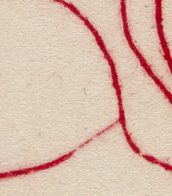

Igor Fedorovich Stravinskii (russian: Игорь Фёдорович Стравинский) was a Russian composer, a citizen of France and the United States. One of the greatest representatives of the world musical culture of the 20th century.
The future composer was born into a creative musical family. Igor Stravinskii's father was an opera singer, soloist of the Mariinsky Theater Fedor Stravinskii, and his mother was a pianist Anna Kholodovskaya. Igor studied music at home, the Stravinskiis were often visited by their friends: composers Caesar Cui and Nikolai Rimsky-Korsakov, critic Vladimir Stasov and writer Fyodor Dostoevsky. For five years from 1902 Igor Stravinsky studied with the composer Nikolai Rimsky-Korsakov. At the same time he became close to the impresario Sergei Diaghilev and the artists of the "World of Art" association.
Stravinskii 's first works were created under the influence of Rimsky-Korsakov and the French Impressionists, and his music bears a vivid imprint of the Russian cultural tradition. Igor Stravinskii's first ballet, The Firebird, was performed in June 1910 at the Paris Grand Opera House, and he later wrote music for Diaghilev's ballets Petrushka (1911) and Sacred Spring (1913). It was after the premiere of his ballets at Sergei Diaghilev's Russian Seasons in Paris that Stravinskii gained worldwide fame. The sets for his ballets were created by the artists Alexander Benois and Nikolai Roerich, the choreography was prepared by the famous dancers Vaclav Nijinsky and George Balanchine, and the costumes were designed by Coco Chanel herself.
In 1920 Stravinskii moved to France and in 1934 he took French citizenship. In Paris, the composer composed many works that became world-famous. In 1939 Igor Stravinskii moved to the United States and in 1945 he took American citizenship. During this period, he began to turn more to biblical themes and music of the pre-Brahmsian period.
From 1924 Stravinskii also performed as a pianist and conductor of his own works. In 1962, at the invitation of the USSR Ministry of Culture, Igor Stravinsky gave several concerts in Moscow and Leningrad (now St. Petersburg).
Critics believe that in recent years Stravinskii was moving further and further away from the Russian style, but the composer himself believed otherwise. On the basis of Russian folk songs, in 1965 he created a canon for orchestra, "Not a Pine Tree at the Gate Rocked". A year before his death, in 1966, the composer wrote the requiem "Funeral Chants", which he considered to be one of the major works of his life.
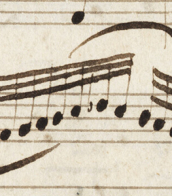

Igor Fedorovich Stravinskii (russian: Игорь Фёдорович Стравинский) was a Russian composer, a citizen of France and the United States. One of the greatest representatives of the world musical culture of the 20th century.
The future composer was born into a creative musical family. Igor Stravinskii's father was an opera singer, soloist of the Mariinsky Theater Fedor Stravinskii, and his mother was a pianist Anna Kholodovskaya. Igor studied music at home, the Stravinskiis were often visited by their friends: composers Caesar Cui and Nikolai Rimsky-Korsakov, critic Vladimir Stasov and writer Fyodor Dostoevsky. For five years from 1902 Igor Stravinsky studied with the composer Nikolai Rimsky-Korsakov. At the same time he became close to the impresario Sergei Diaghilev and the artists of the "World of Art" association.
Stravinskii 's first works were created under the influence of Rimsky-Korsakov and the French Impressionists, and his music bears a vivid imprint of the Russian cultural tradition. Igor Stravinskii's first ballet, The Firebird, was performed in June 1910 at the Paris Grand Opera House, and he later wrote music for Diaghilev's ballets Petrushka (1911) and Sacred Spring (1913). It was after the premiere of his ballets at Sergei Diaghilev's Russian Seasons in Paris that Stravinskii gained worldwide fame. The sets for his ballets were created by the artists Alexander Benois and Nikolai Roerich, the choreography was prepared by the famous dancers Vaclav Nijinsky and George Balanchine, and the costumes were designed by Coco Chanel herself.
In 1920 Stravinskii moved to France and in 1934 he took French citizenship. In Paris, the composer composed many works that became world-famous. In 1939 Igor Stravinskii moved to the United States and in 1945 he took American citizenship. During this period, he began to turn more to biblical themes and music of the pre-Brahmsian period.
From 1924 Stravinskii also performed as a pianist and conductor of his own works. In 1962, at the invitation of the USSR Ministry of Culture, Igor Stravinsky gave several concerts in Moscow and Leningrad (now St. Petersburg).
Critics believe that in recent years Stravinskii was moving further and further away from the Russian style, but the composer himself believed otherwise. On the basis of Russian folk songs, in 1965 he created a canon for orchestra, "Not a Pine Tree at the Gate Rocked". A year before his death, in 1966, the composer wrote the requiem "Funeral Chants", which he considered to be one of the major works of his life.
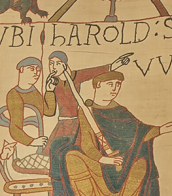

Igor Fedorovich Stravinskii (russian: Игорь Фёдорович Стравинский) was a Russian composer, a citizen of France and the United States. One of the greatest representatives of the world musical culture of the 20th century.
The future composer was born into a creative musical family. Igor Stravinskii's father was an opera singer, soloist of the Mariinsky Theater Fedor Stravinskii, and his mother was a pianist Anna Kholodovskaya. Igor studied music at home, the Stravinskiis were often visited by their friends: composers Caesar Cui and Nikolai Rimsky-Korsakov, critic Vladimir Stasov and writer Fyodor Dostoevsky. For five years from 1902 Igor Stravinsky studied with the composer Nikolai Rimsky-Korsakov. At the same time he became close to the impresario Sergei Diaghilev and the artists of the "World of Art" association.
Stravinskii 's first works were created under the influence of Rimsky-Korsakov and the French Impressionists, and his music bears a vivid imprint of the Russian cultural tradition. Igor Stravinskii's first ballet, The Firebird, was performed in June 1910 at the Paris Grand Opera House, and he later wrote music for Diaghilev's ballets Petrushka (1911) and Sacred Spring (1913). It was after the premiere of his ballets at Sergei Diaghilev's Russian Seasons in Paris that Stravinskii gained worldwide fame. The sets for his ballets were created by the artists Alexander Benois and Nikolai Roerich, the choreography was prepared by the famous dancers Vaclav Nijinsky and George Balanchine, and the costumes were designed by Coco Chanel herself.
In 1920 Stravinskii moved to France and in 1934 he took French citizenship. In Paris, the composer composed many works that became world-famous. In 1939 Igor Stravinskii moved to the United States and in 1945 he took American citizenship. During this period, he began to turn more to biblical themes and music of the pre-Brahmsian period.
From 1924 Stravinskii also performed as a pianist and conductor of his own works. In 1962, at the invitation of the USSR Ministry of Culture, Igor Stravinsky gave several concerts in Moscow and Leningrad (now St. Petersburg).
Critics believe that in recent years Stravinskii was moving further and further away from the Russian style, but the composer himself believed otherwise. On the basis of Russian folk songs, in 1965 he created a canon for orchestra, "Not a Pine Tree at the Gate Rocked". A year before his death, in 1966, the composer wrote the requiem "Funeral Chants", which he considered to be one of the major works of his life.


Igor Fedorovich Stravinskii (russian: Игорь Фёдорович Стравинский) was a Russian composer, a citizen of France and the United States. One of the greatest representatives of the world musical culture of the 20th century.
The future composer was born into a creative musical family. Igor Stravinskii's father was an opera singer, soloist of the Mariinsky Theater Fedor Stravinskii, and his mother was a pianist Anna Kholodovskaya. Igor studied music at home, the Stravinskiis were often visited by their friends: composers Caesar Cui and Nikolai Rimsky-Korsakov, critic Vladimir Stasov and writer Fyodor Dostoevsky. For five years from 1902 Igor Stravinsky studied with the composer Nikolai Rimsky-Korsakov. At the same time he became close to the impresario Sergei Diaghilev and the artists of the "World of Art" association.
Stravinskii 's first works were created under the influence of Rimsky-Korsakov and the French Impressionists, and his music bears a vivid imprint of the Russian cultural tradition. Igor Stravinskii's first ballet, The Firebird, was performed in June 1910 at the Paris Grand Opera House, and he later wrote music for Diaghilev's ballets Petrushka (1911) and Sacred Spring (1913). It was after the premiere of his ballets at Sergei Diaghilev's Russian Seasons in Paris that Stravinskii gained worldwide fame. The sets for his ballets were created by the artists Alexander Benois and Nikolai Roerich, the choreography was prepared by the famous dancers Vaclav Nijinsky and George Balanchine, and the costumes were designed by Coco Chanel herself.
In 1920 Stravinskii moved to France and in 1934 he took French citizenship. In Paris, the composer composed many works that became world-famous. In 1939 Igor Stravinskii moved to the United States and in 1945 he took American citizenship. During this period, he began to turn more to biblical themes and music of the pre-Brahmsian period.
From 1924 Stravinskii also performed as a pianist and conductor of his own works. In 1962, at the invitation of the USSR Ministry of Culture, Igor Stravinsky gave several concerts in Moscow and Leningrad (now St. Petersburg).
Critics believe that in recent years Stravinskii was moving further and further away from the Russian style, but the composer himself believed otherwise. On the basis of Russian folk songs, in 1965 he created a canon for orchestra, "Not a Pine Tree at the Gate Rocked". A year before his death, in 1966, the composer wrote the requiem "Funeral Chants", which he considered to be one of the major works of his life.
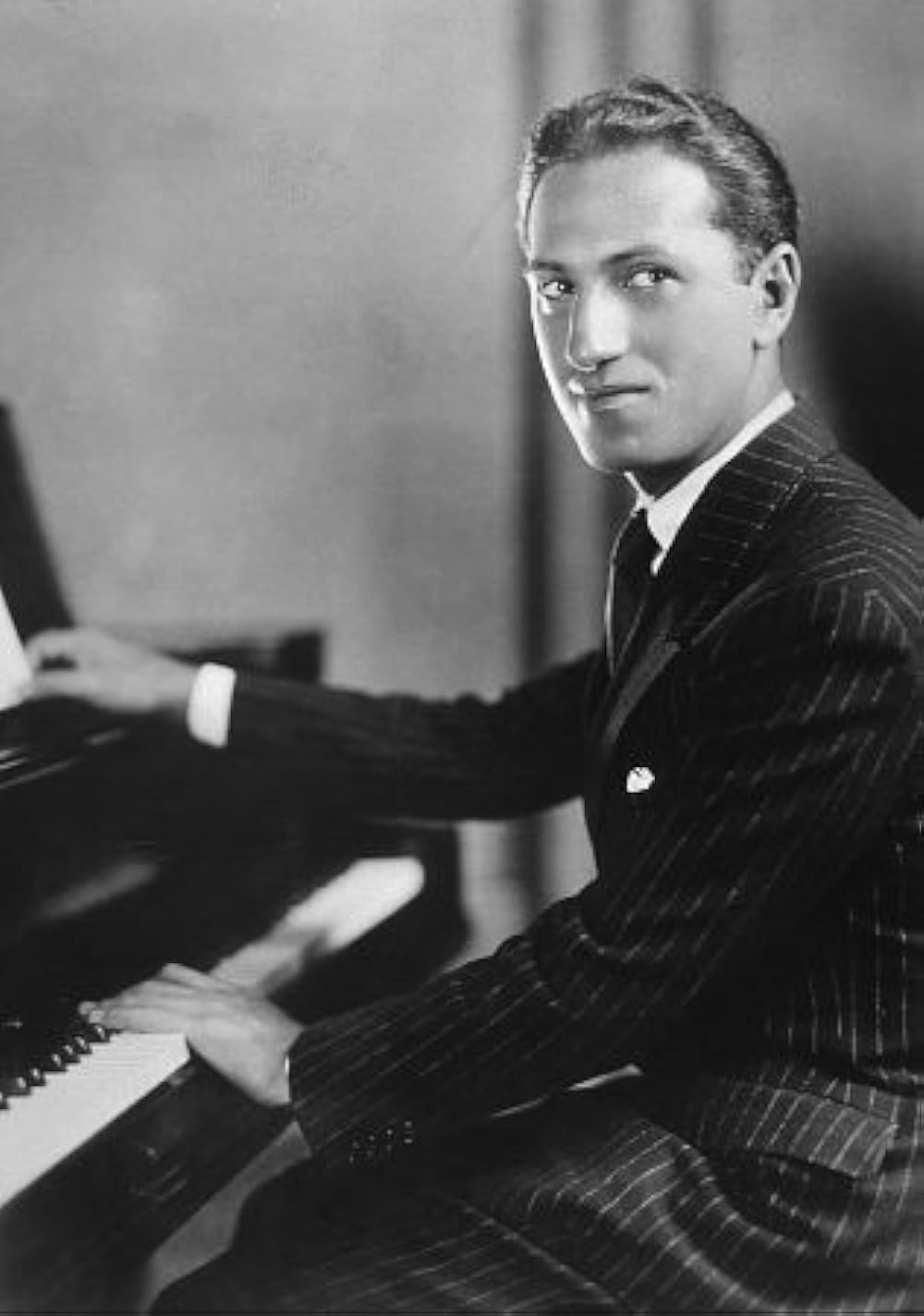
George Gershwin, born Jacob Gershwin, is an American composer and pianist.
George's parents emigrated from Russia to the United States in 1891, and he was about 12 years old at the piano, becoming virtually self-taught. Gershwin published his first song in 1916, but it was Swanee, written by a 20-year-old Gershwin in 1918, that made him famous. The income he received for it allowed Gershwin to concentrate on musical theater. In the 1920s, however, George, along with his older brother Ira, were major songwriters and hit songwriters on Broadway. The lyrics for all of Gershwin's films were written by Ira Gershwin, as were the lyrics for most of his musicals, although early in his career Gershwin worked with other lyric writers, including Irving Caesar and Buddy De Silva.
The Gershwin brothers' first Broadway hit was the song Lady Be Good in 1924. In his songs, Broadway shows, and movie scores, composer George Gershwin achieved unprecedented success with his masterful mastery of jazz, classical, and popular music styles. These include "Rhapsody in Blue" in 1924, "Concerto in F" in 1925, "An American in Paris" in 1928, and "Second Rhapsody" in 1931. Between 1919 and 1935. Gershwin wrote music for 31 musicals, one of which - Of Thee I Sing - in 1932 became the first musical to win the Pulitzer Prize for Dramaturgy. Gershwin's songs have also been used in numerous films and award-winning musicals over the years.
The opera Porgy and Bess, co-written with Dubose, Dorothy Hayward, and Ira Gershwin, was the Gershwin brothers' most ambitious project, combining memorable songs with drama. It was first performed in Boston in 1935 and was made into a movie in 1959.
In 1937, at the age of only 39, the brilliant composer died of a brain tumor. George Gershwin was at the height of his career, leaving a significant and lasting mark on the world of classical music. Today, his orchestral works are performed by most of the world's prestigious symphony orchestras. Ira Gershwin, who was two years older, lived 46 years after George's death.

